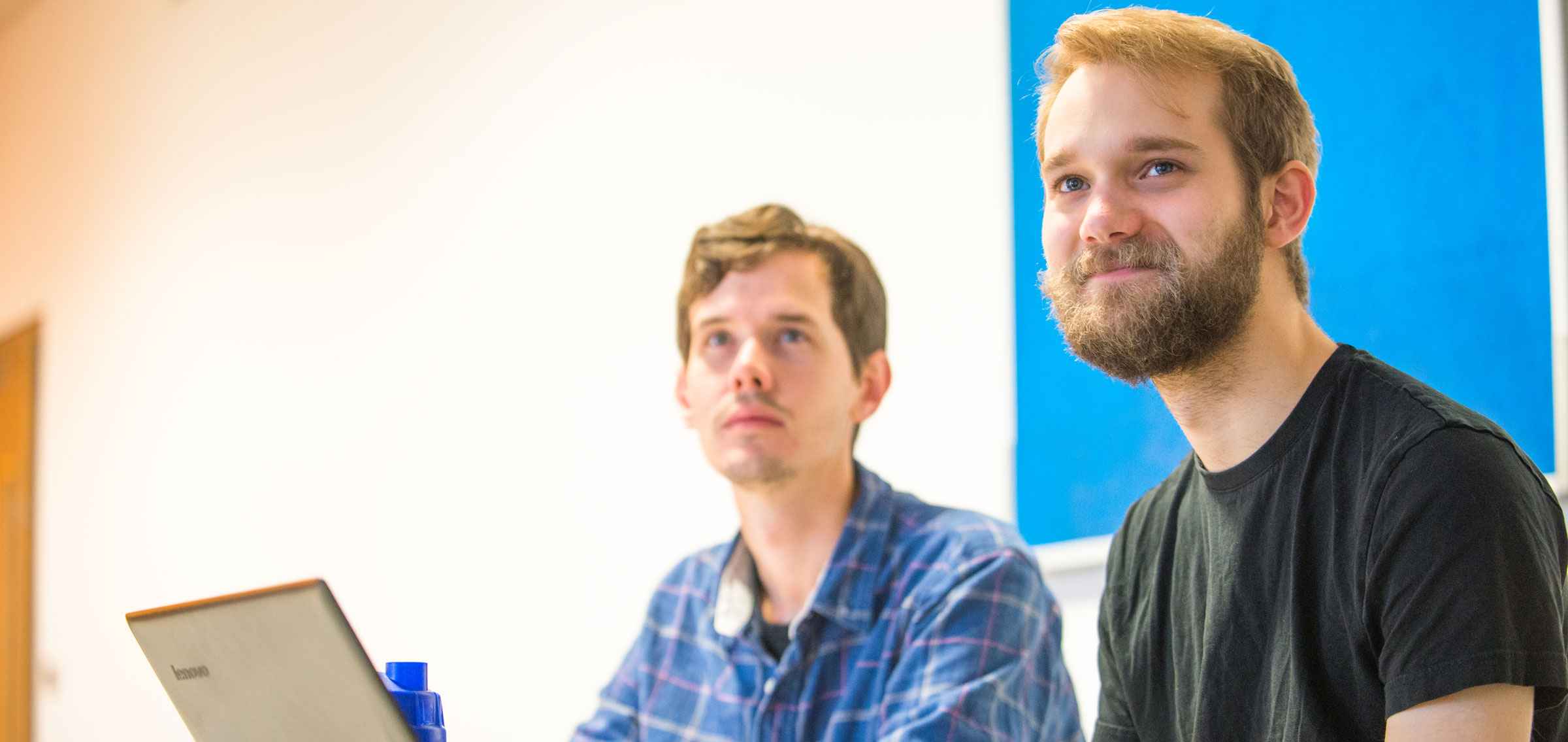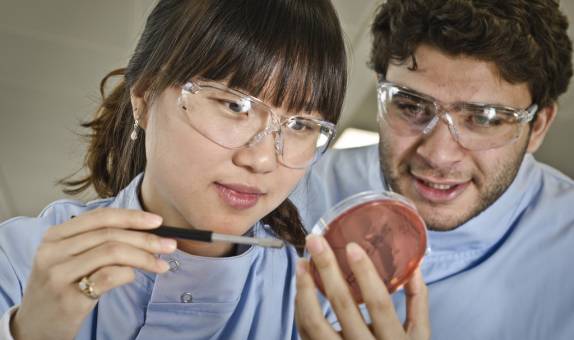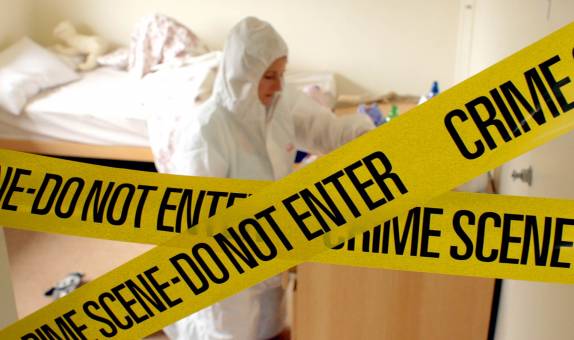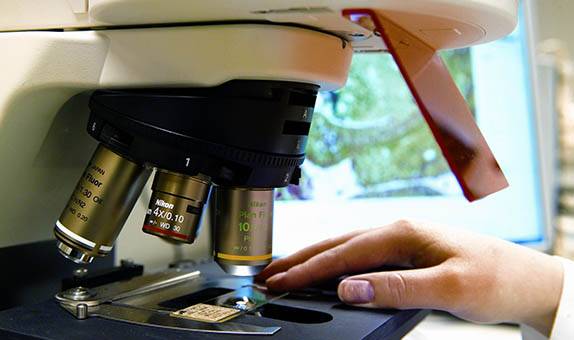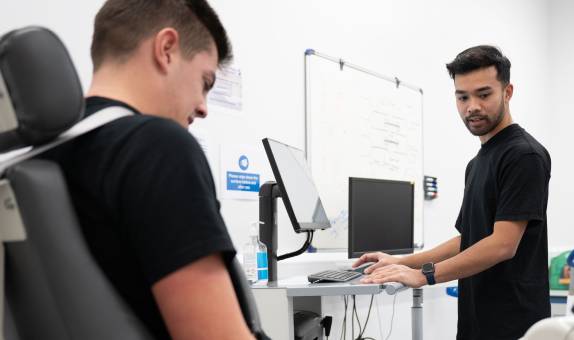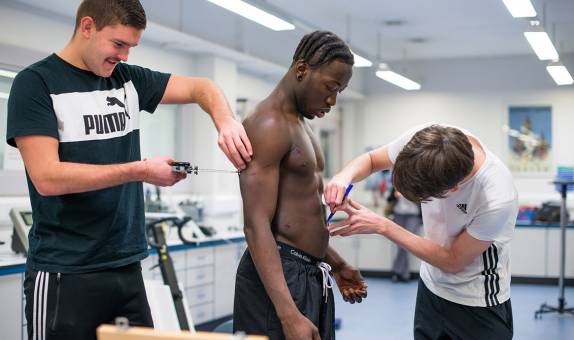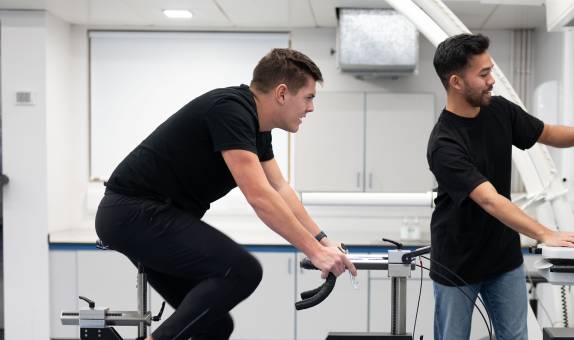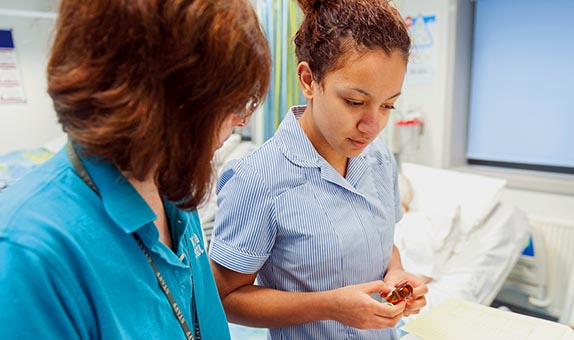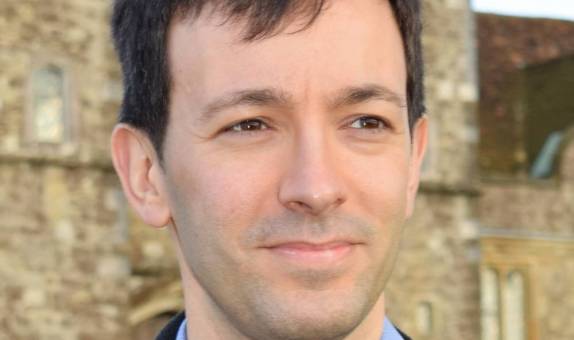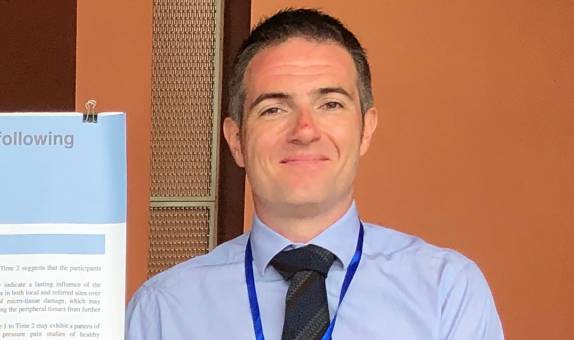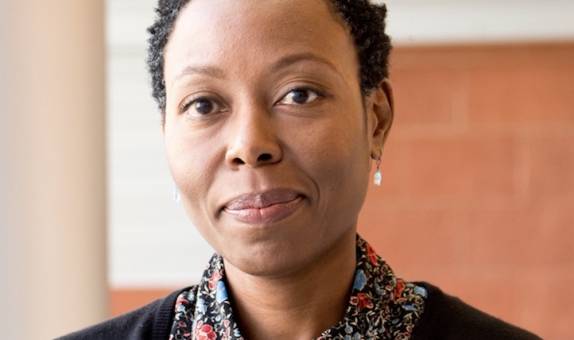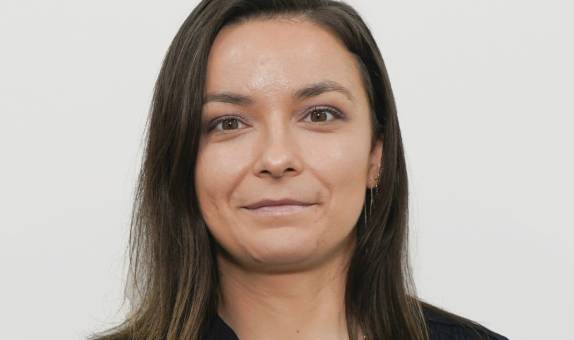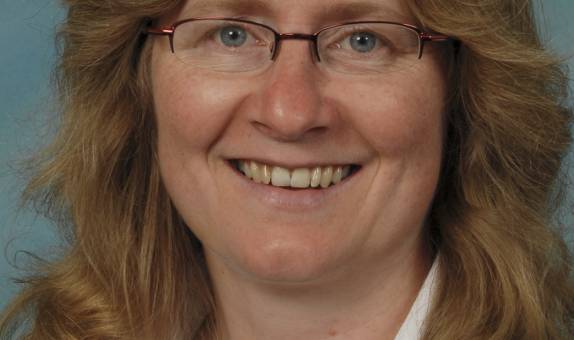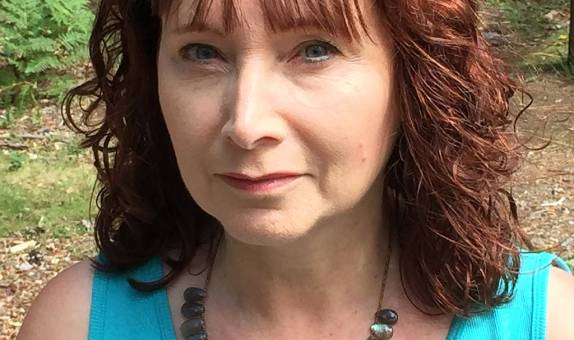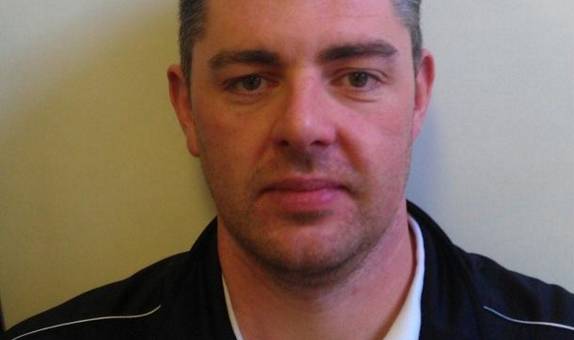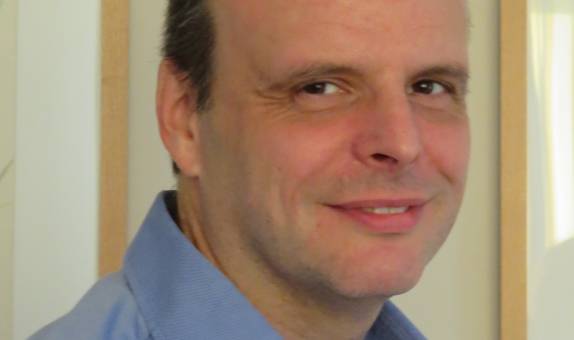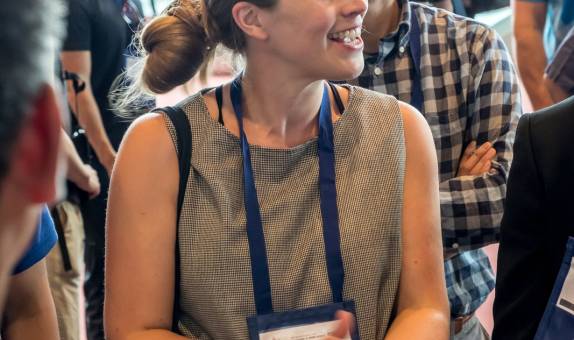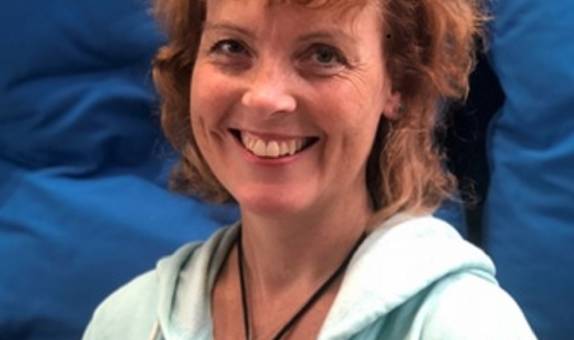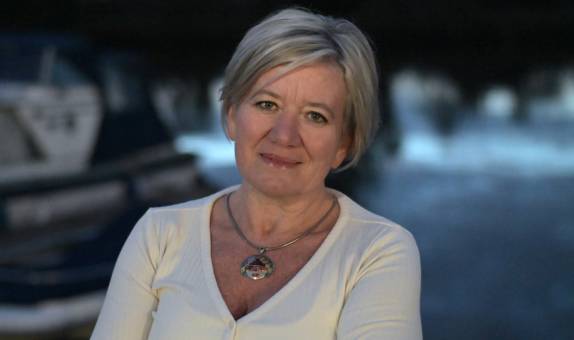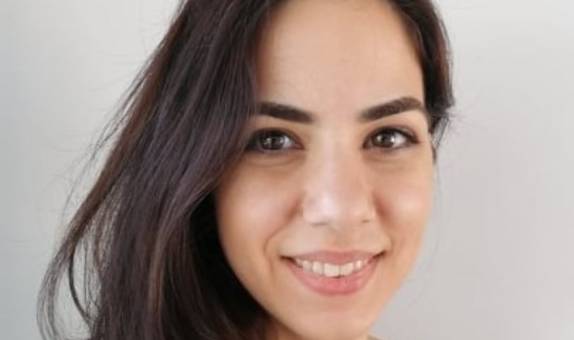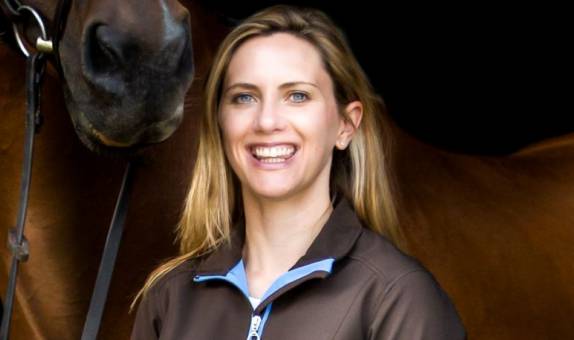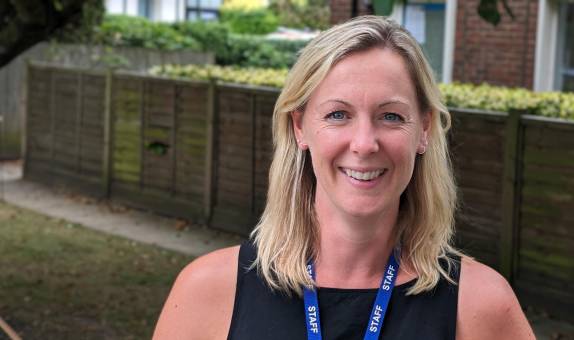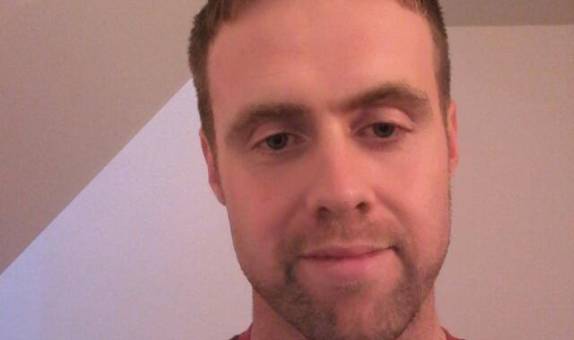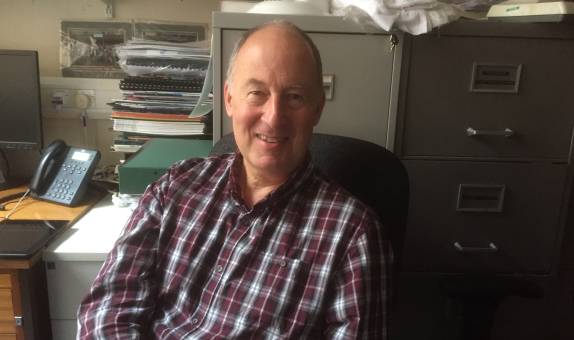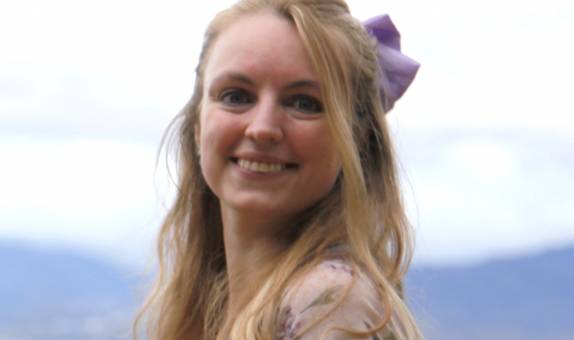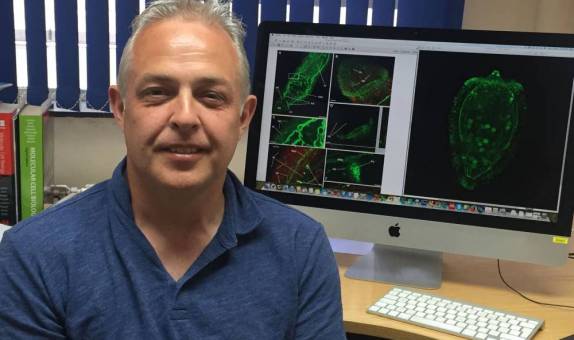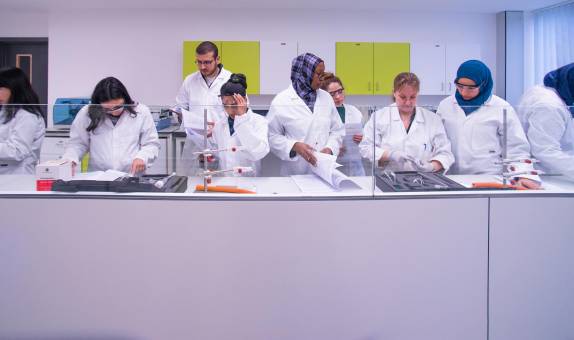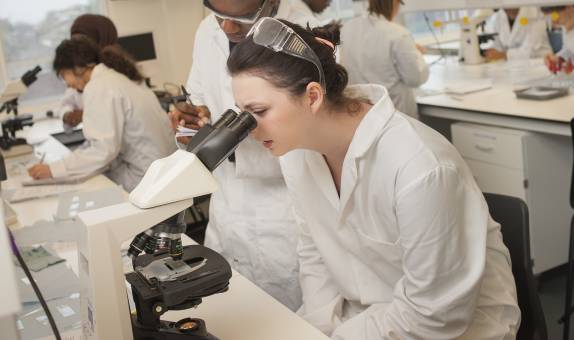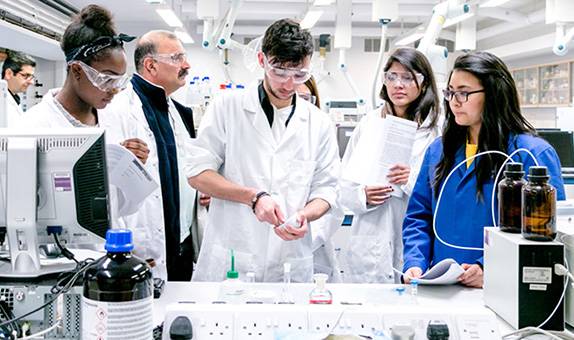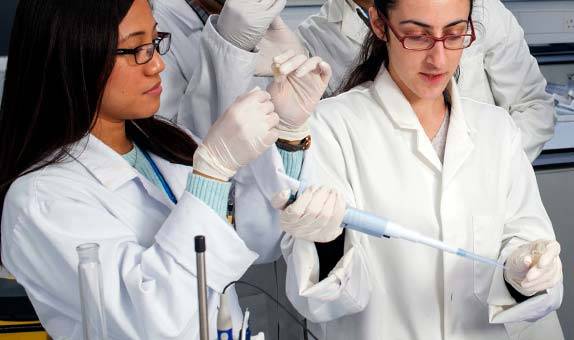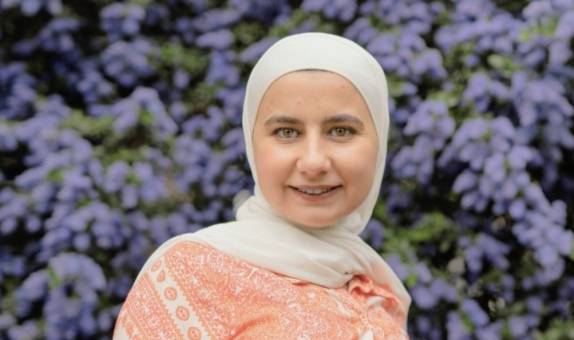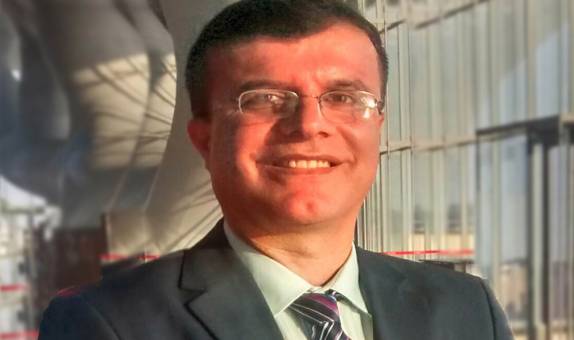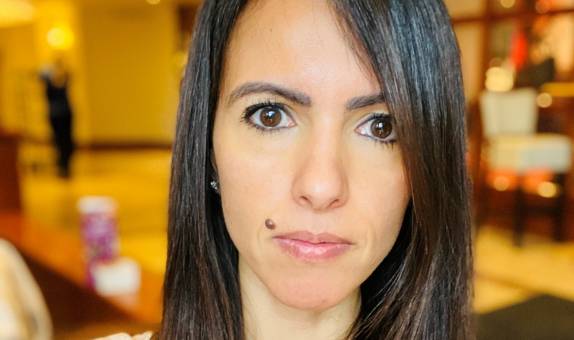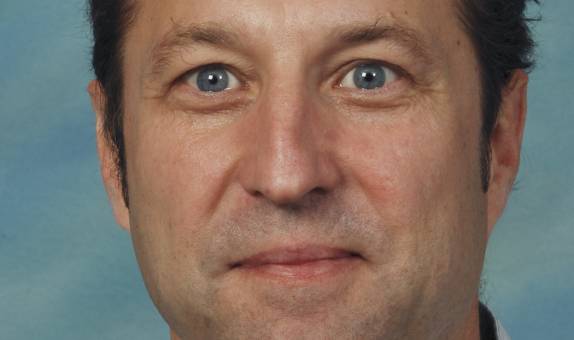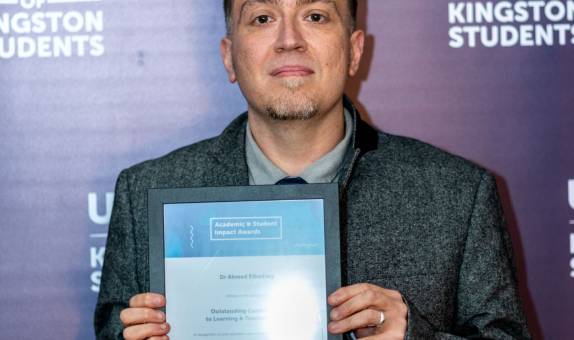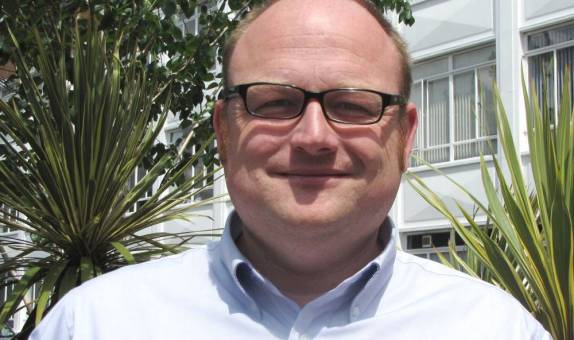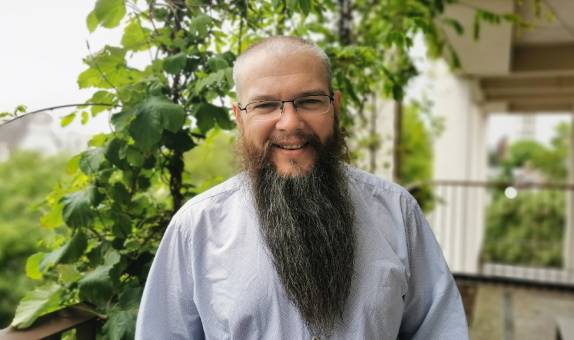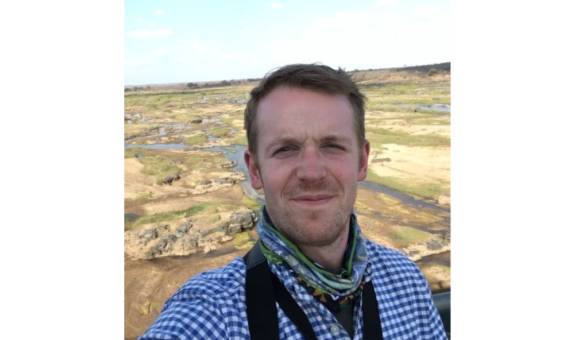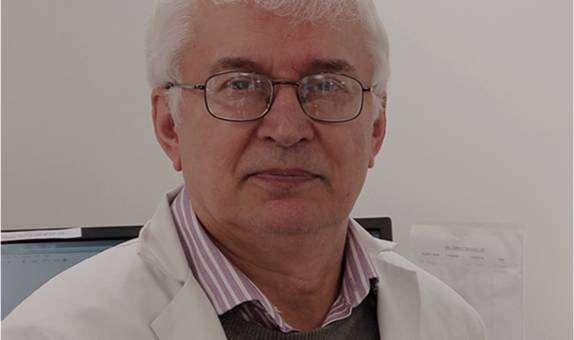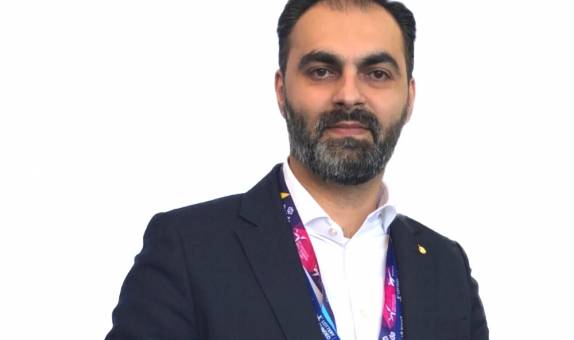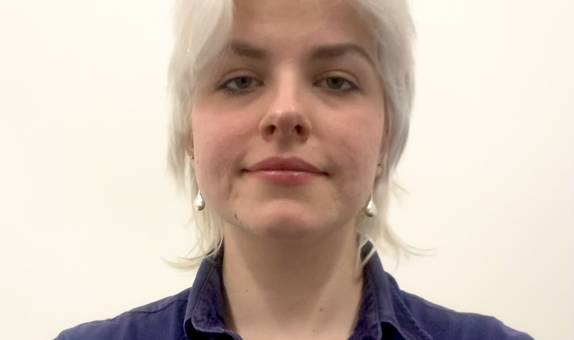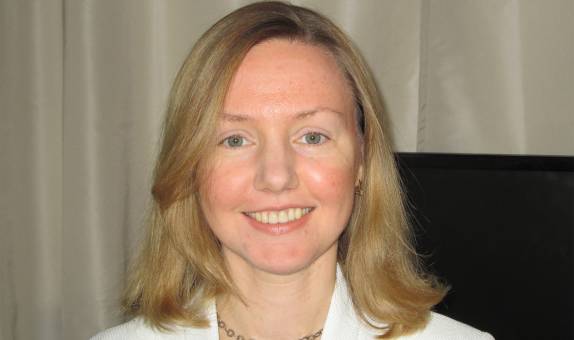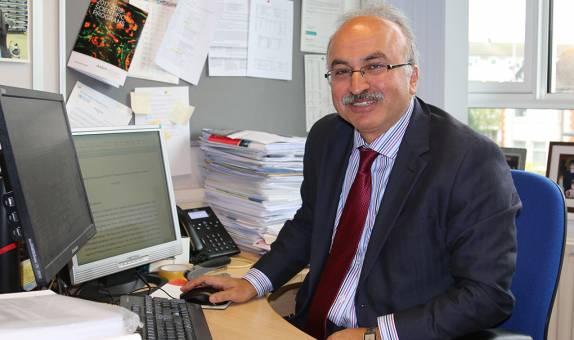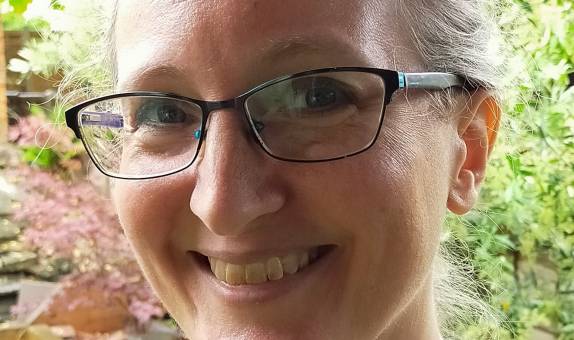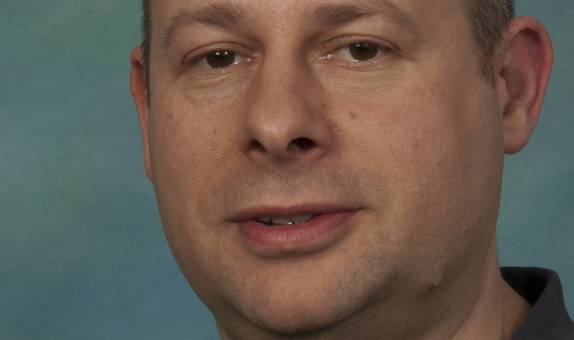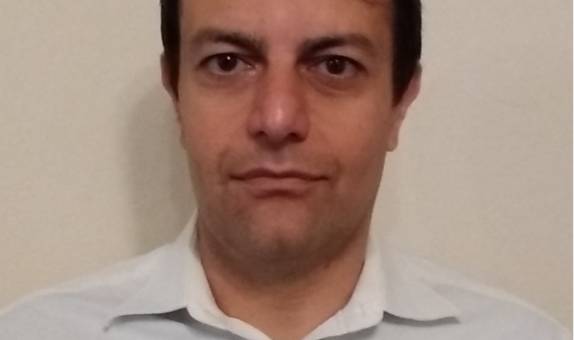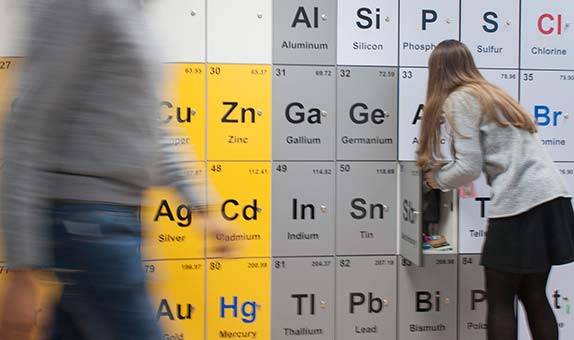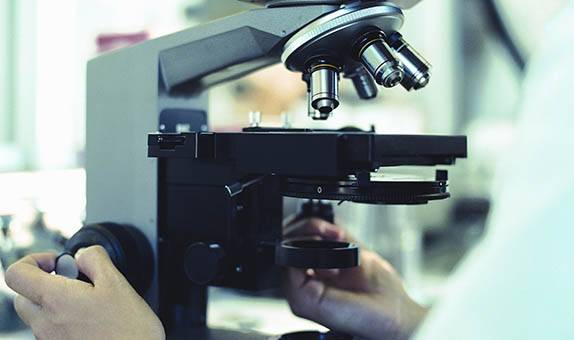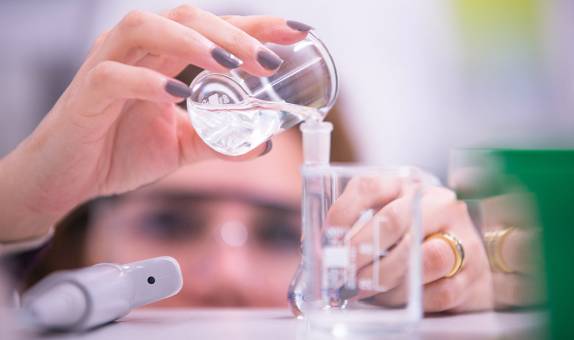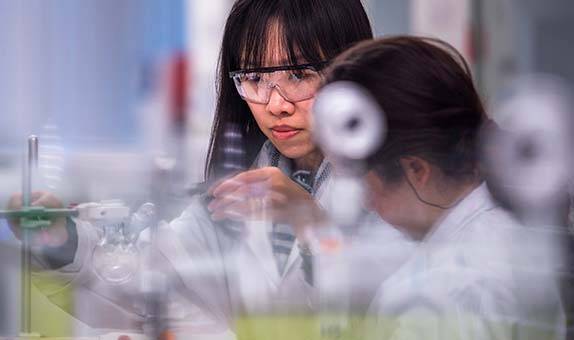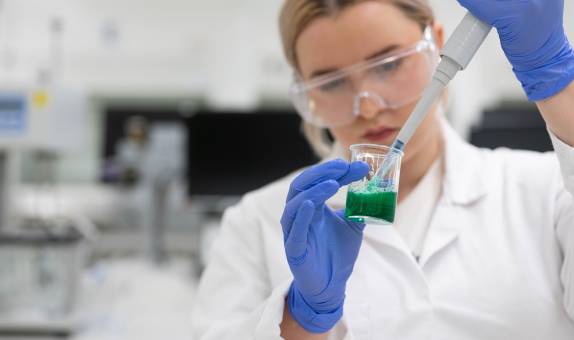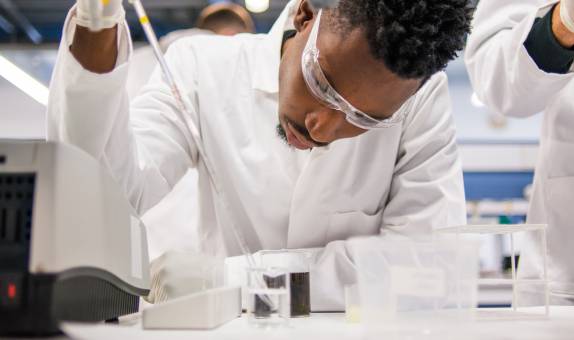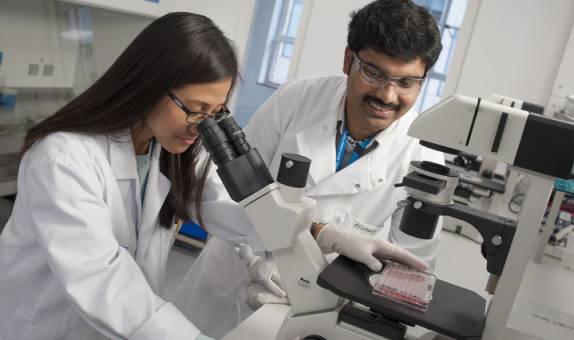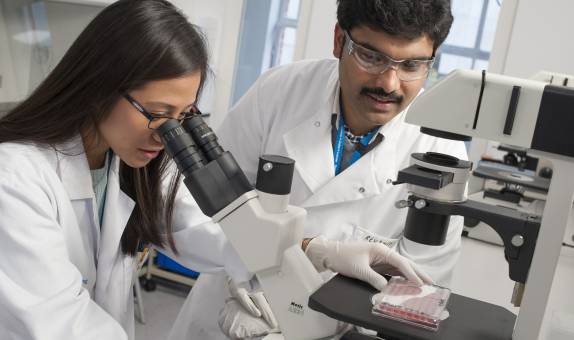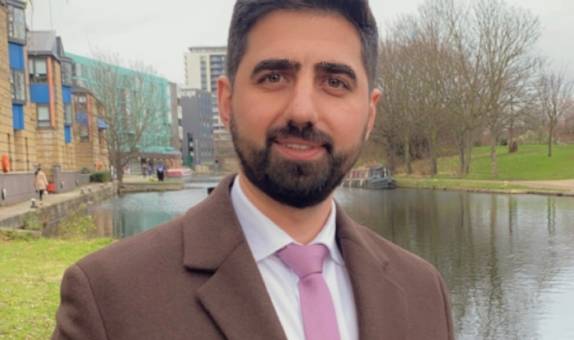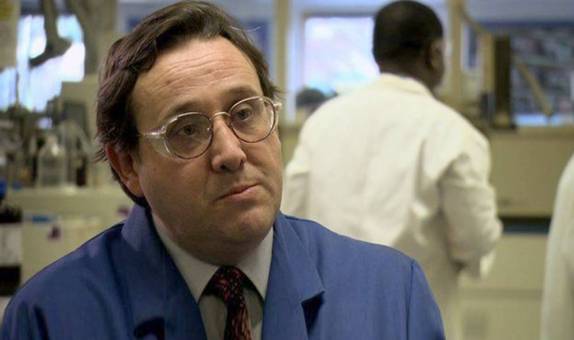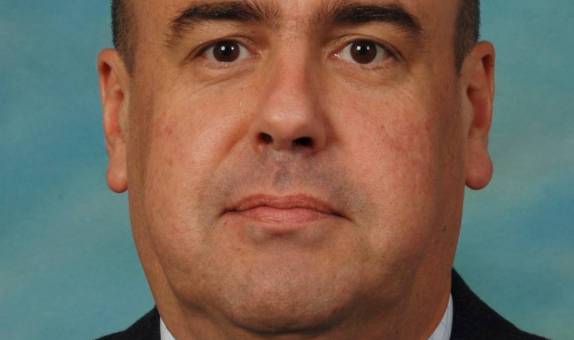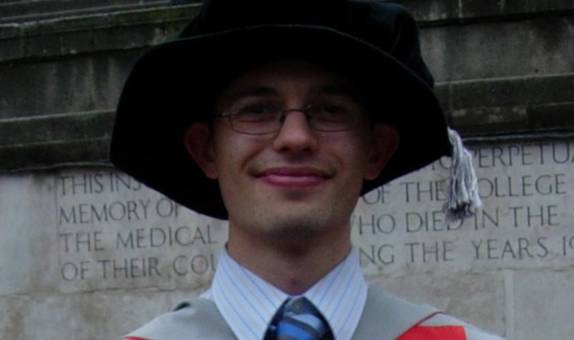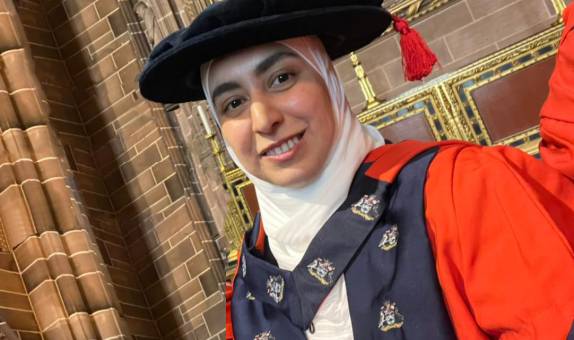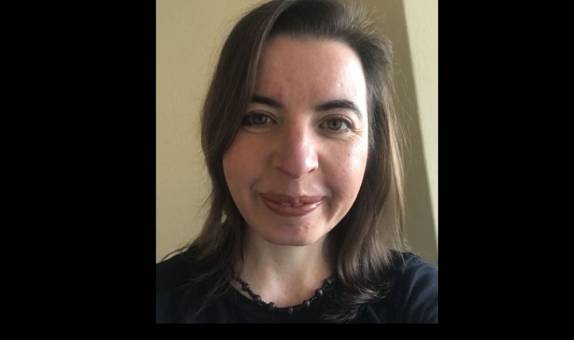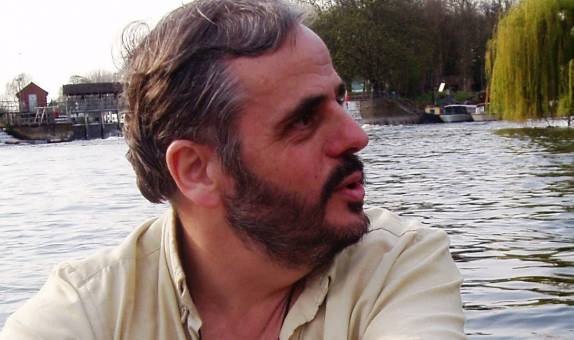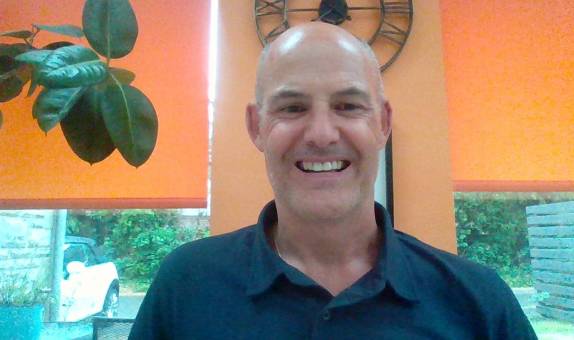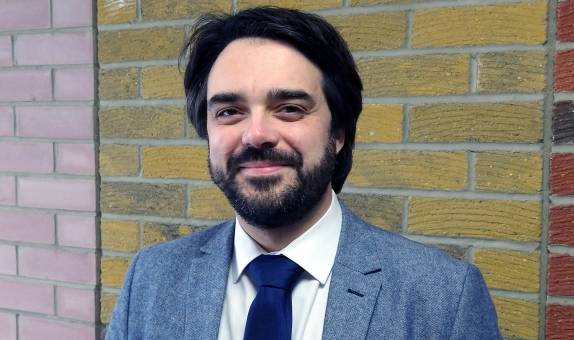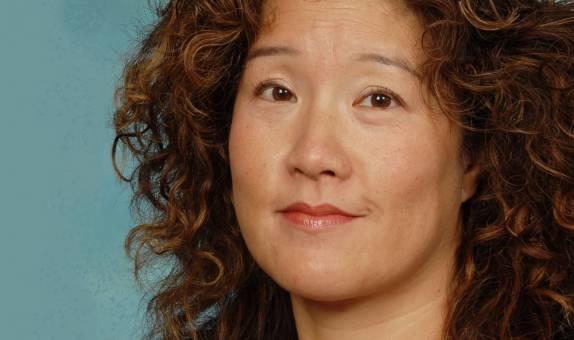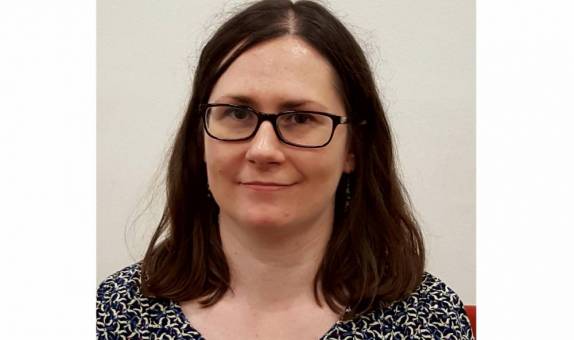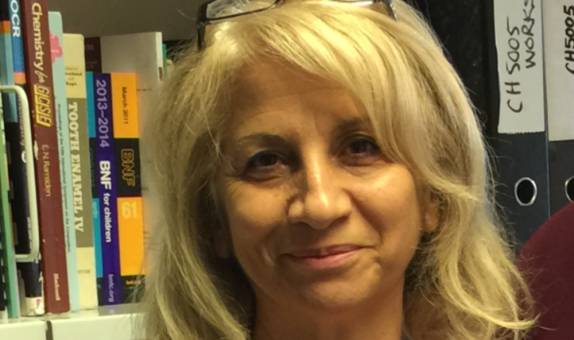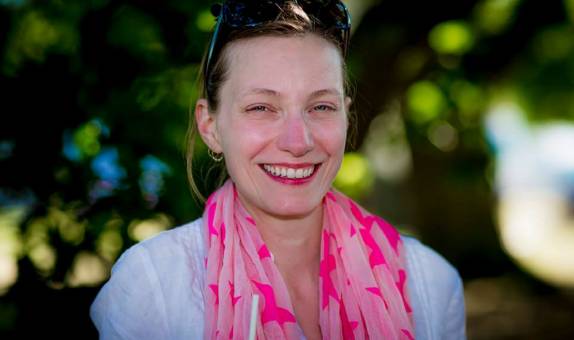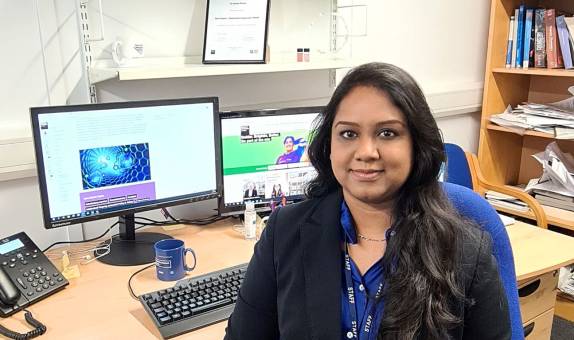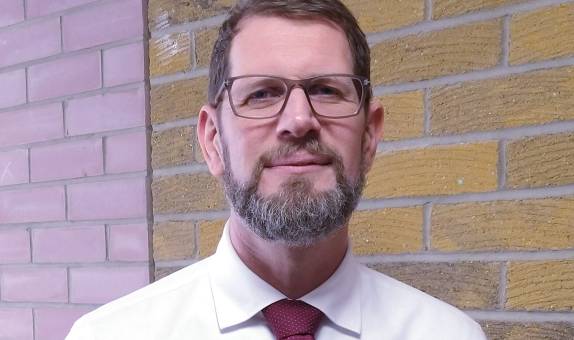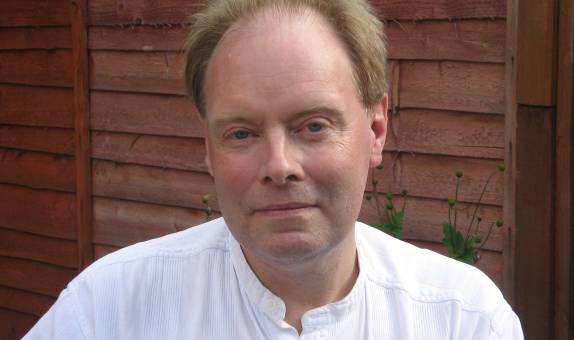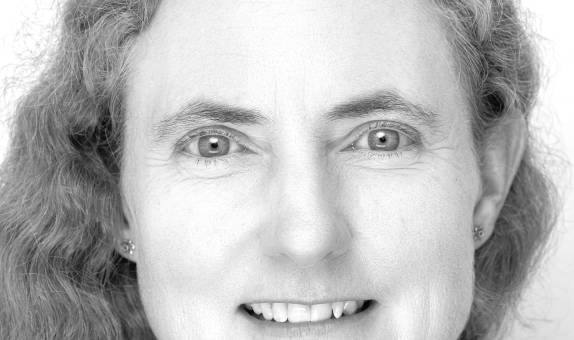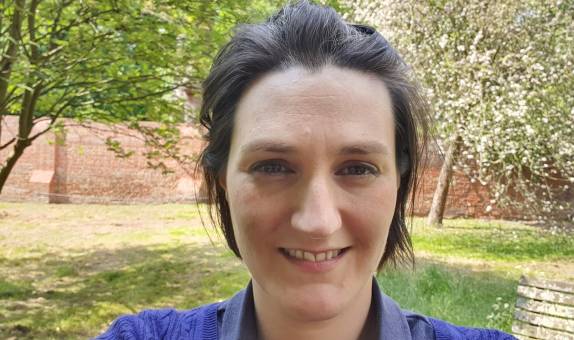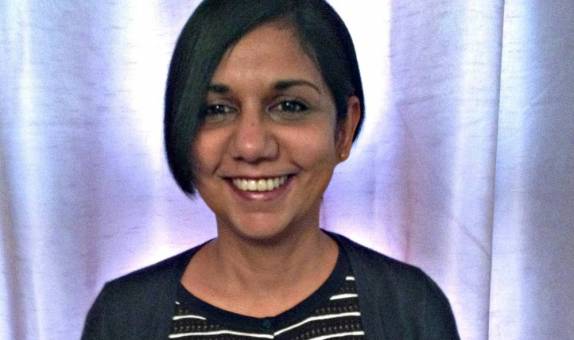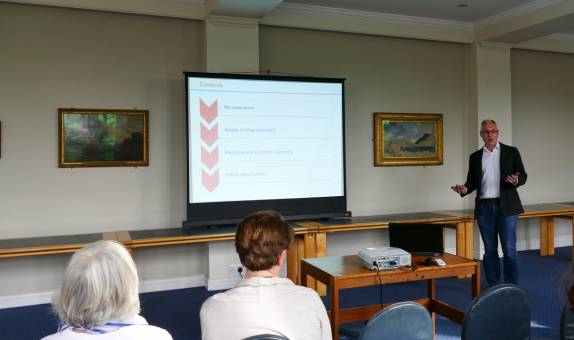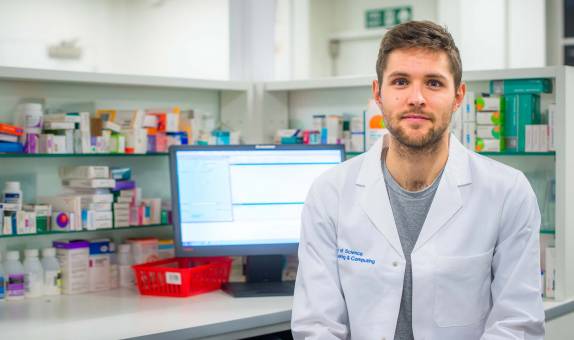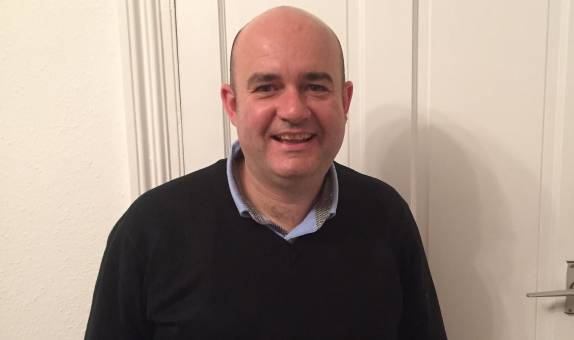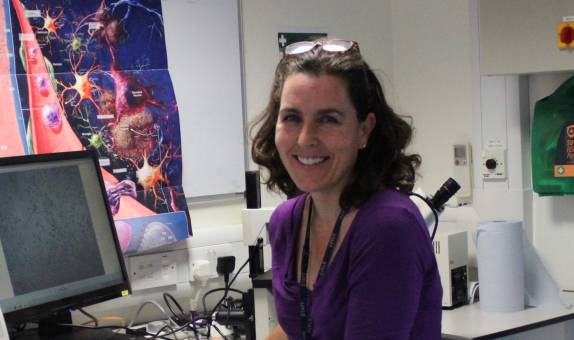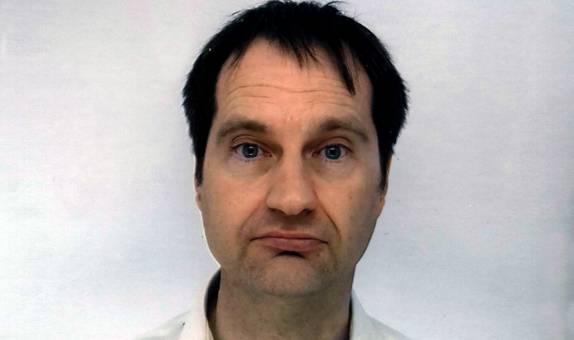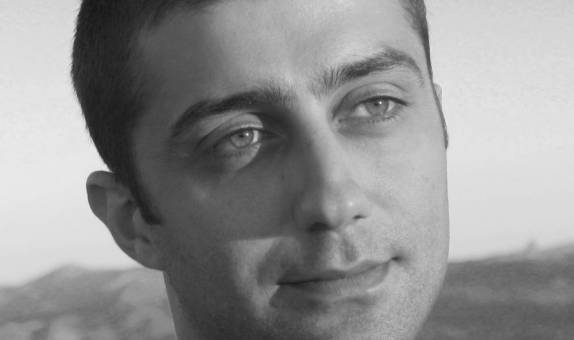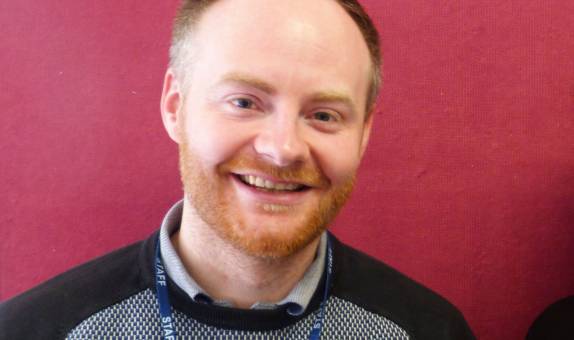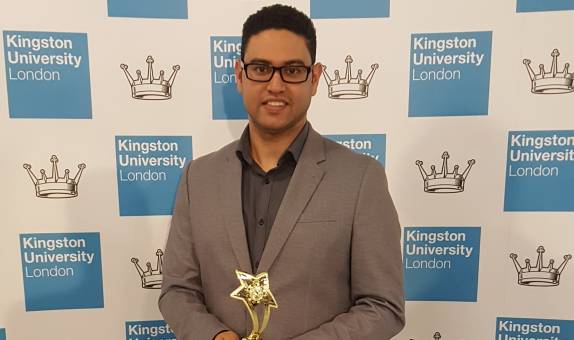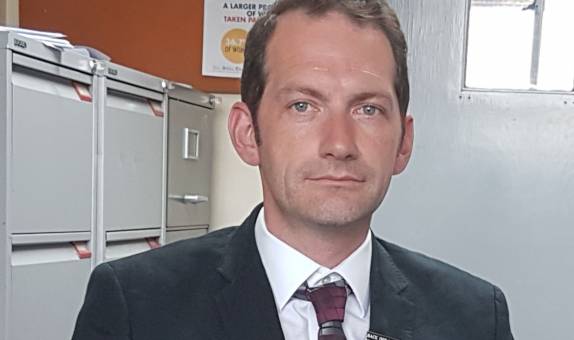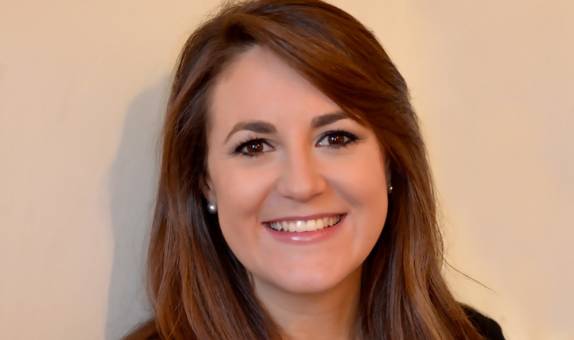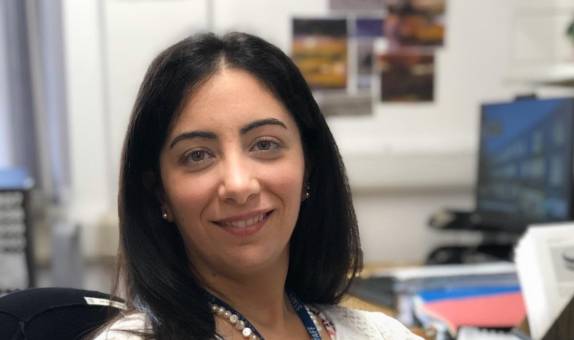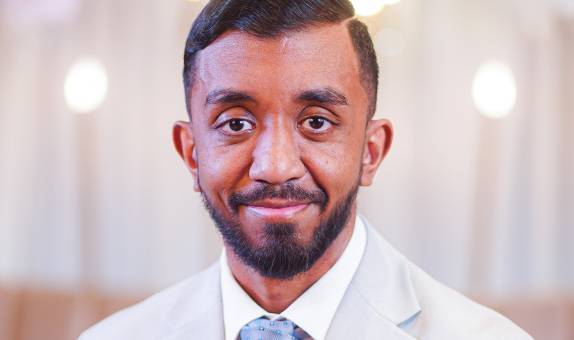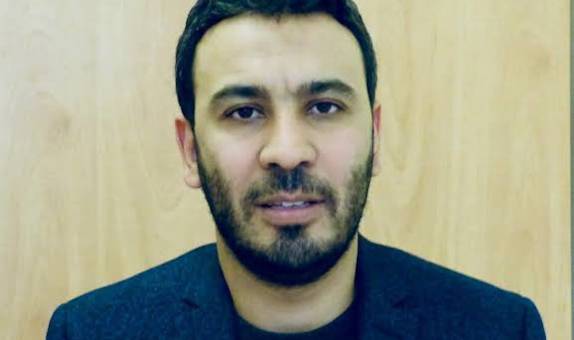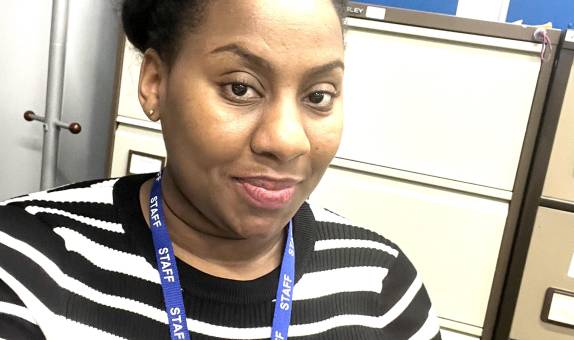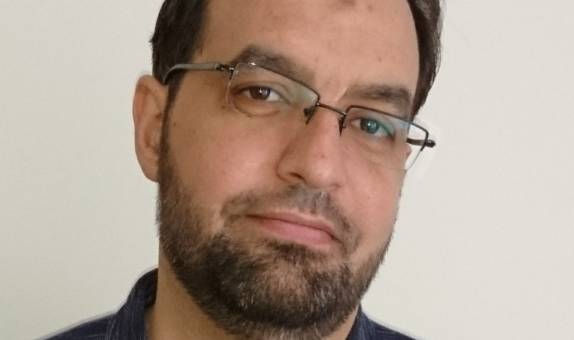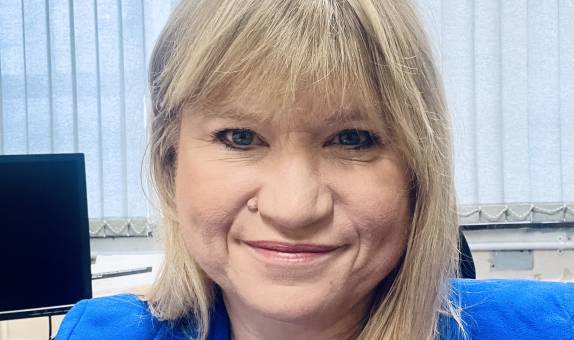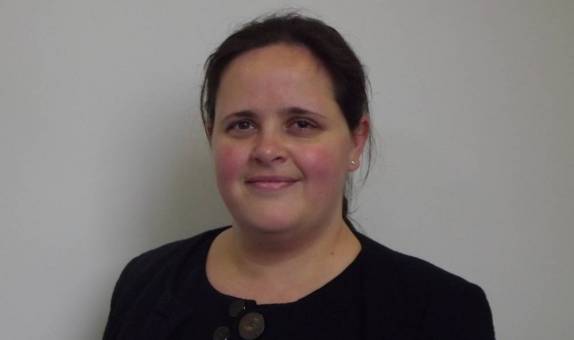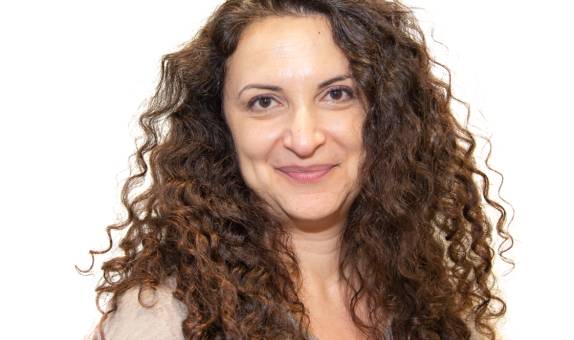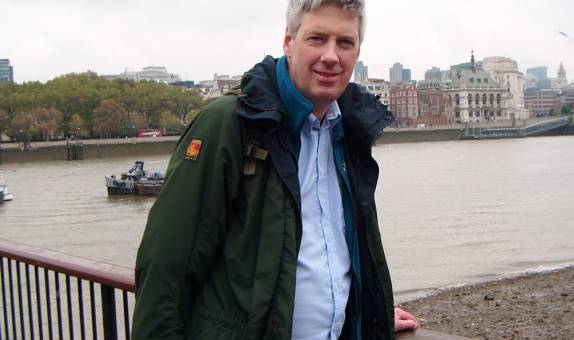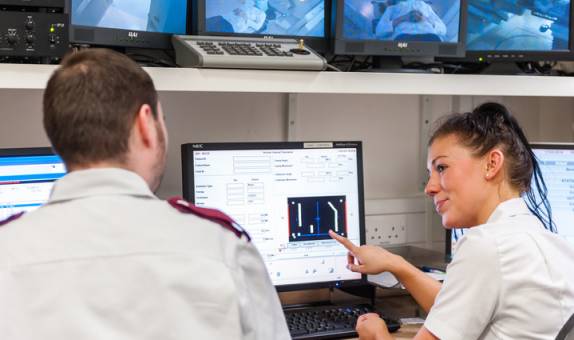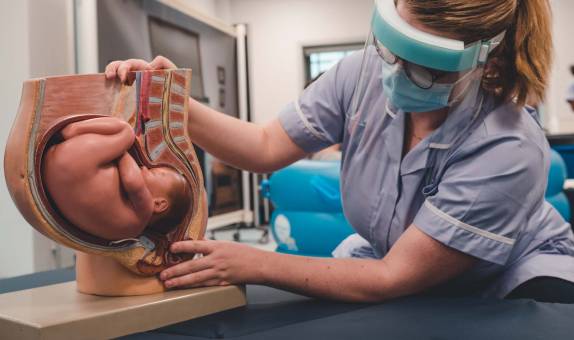School of Life Sciences, Chemistry and Pharmacy
The School of Life Sciences, Chemistry and Pharmacy is made up of four departments:
- Department of Applied and Human Sciences
- Department of Biomolecular Sciences
- Department of Chemical and Pharmaceutical Sciences
- Department of Pharmacy
Understanding the role of biomolecules, cells, organs and systems within our body and how that is related to wellbeing, diseases and ageing is broadly what Life Sciences are about. The fundamental science, clinical and professional practice based courses provided by the School are integrated to enrich student experience and along with competency based assessments are in the heart of our education philosophy. Courses in chemical and pharmaceutical sciences provide knowledge and skills needed for the development and quality assessment of new medicines to treat disease.
We've invested heavily in the development of new facilities including laboratories for teaching and research. The first stage of a recent £6.8million investment into state-of-the-art STEM facilities is already complete. Our labs provide students with access to ultra-modern equipment in a wide range of teaching facilities, in areas such as anatomy, biochemistry, biotechnology, cell and molecular biology, histology, immunology, microbiology, nutrition, pharmacology, physiology, radiotracer studies, sports science (including biomechanics and an environmental testing chamber), chemical synthesis and analysis, pharmaceutics, specialist labs for pharmacy practice, pharmaceutical science and chemistry, a forensic crime scene and pharmacy dispensing simulation suites.
Department of Applied and Human Sciences
Our sport science and nutrition degrees scored 100% student satisfaction in the National Student Survey (NSS) in 2015, 2016 and 2017, with sport science also achieving this in 2018. Our Sport Science (Coaching) BSc (Hons) was once again the highest-rated course in London, leaping from 10th to 5th nationally in the Guardian University League Tables 2018.
Our nutrition degrees are accredited by the Association for Nutrition and our bioscience degrees are accredited by the Royal Society of Biology.
We have a wide range of facilities for sport science degrees' practical work at our Penrhyn Road campus, where these courses are primarily based. You will have access to a modern environment with the latest equipment including specialist exercise physiology and biomechanics laboratories.
Our forensic students have access to the scene of the crime house, a crime laboratory and our own brand-new DNA analysis laboratory. All students gain in-depth expert witness training, including mock courtroom cross-examination at Kingston Crown Court. We also have specialist courses in fields such as Blood Pattern Analysis (BPA), gunshot residue, the identification of human remains and the analysis of counterfeit documents. The teaching team comprises casework-experienced scientists in the fields of skeletal anatomy, forensic archaeology, fire investigation, DNA analysis, crime scene examination, forensic toxicology, gunshot residue and questioned documents analysis.
Our modern nutrition kitchen is a dedicated, flexible and inviting teaching space which we use for food science practicals, research projects and student nutrition society events. Experience it for yourself via our virtual tour.
Our accredited biological science degrees are supported and delivered by a team of scientists recognised internationally for their research in cell biology, molecular genetics and evolution, infectious disease biology, applied ecology and human health. You can choose to study human, medical or genetics and molecular biology. You will have access to the applied and human sciences laboratories including the exercise physiology and biomechanics laboratories; specialist equipment, such as electron microscopes and spectrometers; ion torrent next generation personal genome sequencer, and the newly refurbished state-of-the-art nutrition kitchen.
Our academics have experience and expertise in a wide range of areas including cell biology, biomechanics, sport and exercise coaching, sport and exercise psychology, nutrition, parasitology, microbiology, epidemiology, international and public health. As well this our academics have practice expertise and industrial links.
Courses in the Department of Applied and Human Sciences
Academic staff in the Department of Applied and Human Sciences
Department of Biomolecular Sciences
The Department of Biomolecular Sciences is host to one of the School's most popular courses – the Bachelor of Biomedical Science (Hons) – and the Master of Science programmes.
Both are accredited by the Institute of Biomedical Science (IBMS). Graduates are well prepared to work in a variety of areas including hospital pathology laboratories, the pharmaceutical industry and research laboratories. Our biochemistry course is accredited by Royal Society of Biology.
Courses in the Department of Biomolecular Sciences
Academic staff in the Department of Biomolecular Sciences
Department of Chemical and Pharmaceutical Sciences
Kingston University has a reputation for high-quality undergraduate and postgraduate courses in chemistry and pharmaceutical sciences and we have numerous links with the health services and chemical and pharmaceutical industries. Our BSc Chemistry degree is accredited by the Royal Society of Chemistry.
Our academic staff are equipped with wide-ranging educational, research and industrial expertise, particularly in pharmaceutical chemistry, physiology and pharmacology, pharmaceutical technology and forensic and analytical science. The healthy balance of experienced and newer staff, with flourishing research interests, fosters a dynamic academic environment filled with an enthusiasm for learning and supporting excellence.
Industrial and sector-specific placements are available to help students get real, hands-on industry experience.
Courses in the Department of Chemical and Pharmaceutical Sciences
Academic staff in the Department of Chemical and Pharmaceutical Sciences
Department of Pharmacy
This department provides courses to qualify and practice as a pharmacist in the UK. The Master of Pharmacy (MPharm) course is accredited by the General Pharmaceutical Council (GPhC) for this purpose.
The course is firmly patient centred, with a patient focus at the centre of all teaching. The vast majority of graduates become hospital or community pharmacists so the teaching reflects this. Post-graduation employment as a preregistration pharmacist is around 96–98%. During the course, as well as exposure to patients, pharmacy practitioners and doctors, students have the opportunity to work in simulation sessions and undertake clinical placements in community and hospital pharmacies.
The department has a commitment to widening participation; there are alternative routes to get into the MPharm for prospective students with qualifications that don't meet the exacting MPharm criteria. The School's foundation degree is also accredited by the GPhC and successful graduates gain direct entry into the second year of the MPharm course.
Students can undertake a five-year option with a foundation year or transfer to the first year of the MPharm course, subject to achieving the relevant grades from a number of BSc courses.
